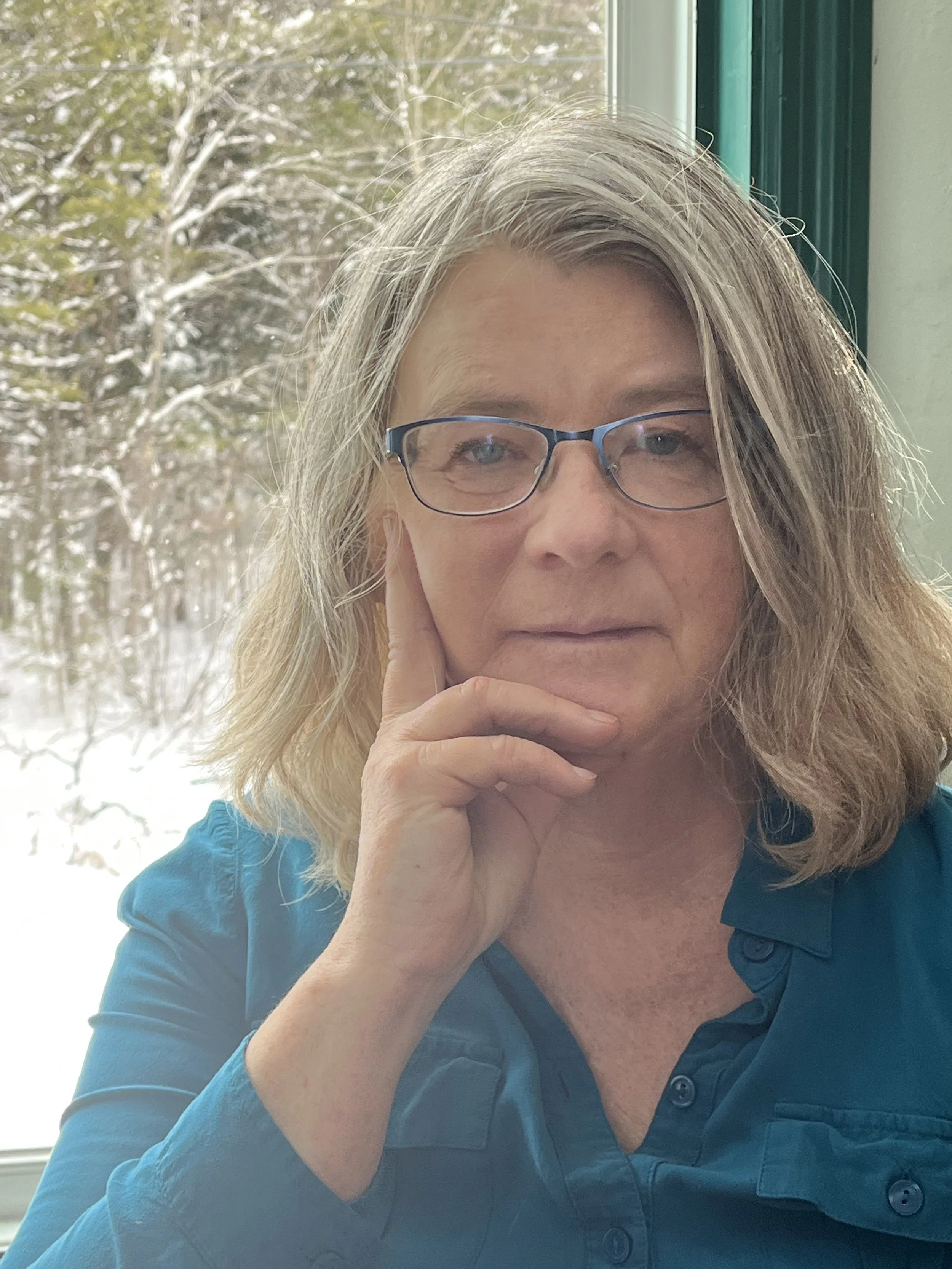Biography
Carol Graser is the author of the poetry collections Prayer for the Sorrowful Brain (Kelsay Books, 2025) and The Wild Twist of Their Stems (FootHills Publishing, 2007). Her work has been published in many journals, including Apricity Magazine, The Berkeley Poetry Review, Evening Street Review, Hollins Critic, I-70 Review, The MacGuffin, Midwifery Today, So to Speak, Southern Poetry Review, and Midwest Quarterly.
In 2003, Graser initiated a monthly poetry reading series at Saratoga Springs’ legendary Caffe Lena, which continues to gather poets and poetry enthusiasts some 20 years later. Her dedication to this series has fostered a strong community of poets and helped make Caffe Lena a central hub for poetry in the area. Graser often reads her work at rallies, fundraisers, and poetry events in the area and has run poetry workshops for teens and at-risk youth. She lives with her husband in the Adirondacks of upstate New York, where they raised three children, countless chickens, and a few cats.
Writer’s Statement
I have some touchpoints with poetry I want to share as an introduction. There are more, but I don’t want to go on too long, and these few, I hope, will give you a sense of my life as a poet.
The first was when I organized and hosted a poetry reading at Caffe Lena in Saratoga Springs, NY. Caffe Lena is a music venue that boasts a magical stage, in a room steeped in decades of support for artists, and I wanted poets to have more time on that stage. That reading turned into over 20 years of poetry nights, all on the first Wednesday of every month. It’s gratifying to watch the featured poet sell some books and to hear that well-deserved, sustained applause. I also work to support every kind of poet who walks through the door and appreciate a regular audience that makes the same effort. At some point during every poetry night, I find myself in a roomful of people talking to each other about a poem they loved that evening, people buying each other’s books, and exchanging information about other poetry readings. I often can’t believe my luck in getting to be a part of sharing this legendary stage with the newly published, the well published, with teachers, students, drifters, rhymers, slammers, traveling salesmen, those who are grieving, healing, and working their way by reading and writing poetry.
The next happened when I was teaching poetry workshops regularly, mostly to teenagers. I had the opportunity to teach at Tryon Girls Residential Center, a medium to maximum secure facility. We met once a week, in a classroom in a maze of locked halls and rooms, escorted by gigantic guards sporting rings of keys. My students were locked up at the center for several months to several years. Each session, they created poems that expressed anger, shared secrets, and overwhelmingly spoke of love. At the end of each workshop session, I gave them copies of a chapbook of their voices. These chapbooks were read by family and friends, by the facility’s teachers, direct care workers, psychologists, and administrators. Here was poetry working to communicate and heal.
The last moment I want to share was at a rally outside the New York State Capitol just before the U.S. started bombing Iraq in March of 2003. I read a poem about my father, a career Air Force officer, coming home from a stint in Vietnam. The crowd was large and shivering, standing in the middle of piles of snow. By the time I stood at the microphone, we’d been there awhile, half-listening to speeches, trying to keep warm. As I began reading, the shuffling and chatter slowed, then stopped. They were listening. When I left the stage, I could barely make it to my family, so many kind souls stopped me to hug me and say thank you. What an honor to speak to and for this crowd on that occasion, to put poetry’s shoulder to the grindstone of creating peace.
Thanks for visiting my page.

